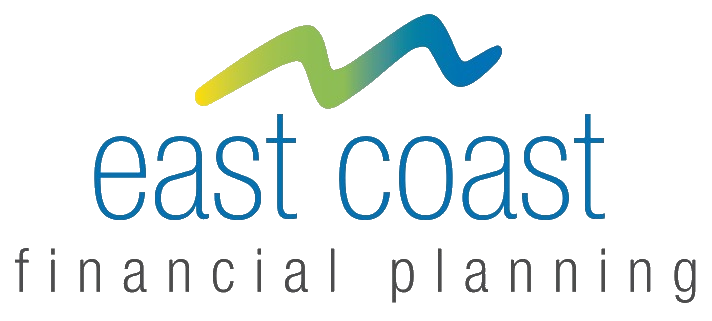Navigating the complexities of car allowances and logbooks can be daunting for small business owners.
This can be complex, and understanding what you can claim is crucial for optimising your business deductions and minimising tax liabilities.

In this guide, we delve into the intricacies of car allowances and logbooks, answering the question that small business owners often ask: What can I claim when it comes to my organisation’s motor vehicles?
We’ll cover the following:
- The different business structures and how that affects how your business can claim vehicle expenses
- How vehicle ownership makes a difference
- What car allowances are and how they work
- What logbooks are and how they’re used for tax purposes
- Tips for keeping proper logbooks
Business Structures and Their Impact on Claiming Vehicle Expenses
The type of business you operate affects how you calculate your motor vehicle expenses, so it’s important to consider this when you are claiming car costs on your business’ tax return.
- You’re a sole trader or in a partnership
- If you’re a sole trader or in a partnership, the calculation depends on the type of vehicle.
- You use your car for business purposes, you can claim expenses like fuel and maintenance. But if you also use it for personal stuff, you’ve got to exclude that personal use percentage.
If you use cars for your business, you’ve got two options for claiming costs: the cents per kilometre method or the logbook method.
With the cents per kilometre method, you can claim up to 5,000 business kilometres per car per year.
(Rates change, though, over time, so make sure you’re up to date with the current rate each tax year).
For the Logbook Method, you’ll need to keep a logbook to record all your trips for at least 12 weeks during the year.
This car logbook helps you work out the business use percentage of your car to claim expenses like fuel and maintenance.
If you use other vehicles, rather than cars, in your business, you must claim actual costs based on receipts. You aren’t allowed to use the cents per kilometre or logbook method for trucks and the like.
You can also use manual logbooks or something like the ATO app to track this or other commercial apps like drivers note that make the task of keeping a logbook easier.
For those with companies and trusts
If your business is set up as a company or trust, you can only claim actual costs based on receipts for motor vehicle expenses.
You can’t use the cents per kilometre or logbook method in this situation.
Other Points of Note
Also, no matter the type of vehicle you own or the type of business structure, note that if you’re using the logbook method or actual costs, you can claim depreciation over time.
There are rules around this, so make sure you’re across them and keep up to date on any ATO changes.
Plus, regardless of the method you use to calculate vehicle expenses in your business, you’ll need to keep accurate records, covering things like loan documents, tax invoices, and registration papers.
Understanding Car Allowances
If you have employees who use their own vehicles to complete work-related tasks for your business, you need to understand how car allowances work.
A car allowance is a payment made by an employer to an employee to cover the costs associated with using their own car for work-related purposes.
It’s essential to distinguish between a car allowance and a reimbursement for actual expenses incurred.
While a car allowance is generally a fixed amount paid regularly, a reimbursement is based on actual expenses and requires documentation to substantiate claims.
What Can You Claim with a Car Allowance?
For those who either have a car allowance set up for themselves in their business or make them available for employees, it’s vital to understand what can be claimed.
The list includes:
Business-related travel
Expenses incurred while using one’s own car for work-related purposes are generally deductible.
This includes travel between different work locations, client meetings, and business-related errands.
Fuel and maintenance
Costs associated with fuel, servicing, repairs, and maintenance of cars used for work-related purposes are deductible.
However, you must keep detailed records of these expenses, including receipts and invoices, to substantiate claims.
Depreciation
The depreciation of your car’s value over time is deductible.
You can claim depreciation as a tax deduction based on the car’s purchase price and its effective life.
Understanding Logbooks
A logbook is a detailed record of all the trips you make in your car for work-related purposes.
It includes information such as the date of each trip, its purpose, the starting and ending odometer readings, and the total kilometres travelled.
Keeping an accurate logbook is essential for substantiating your claims for car-related expenses.
What Can You Claim with a Logbook?
You can claim multiple expenses with your logbook. For example:
Business use percentage
The key benefit of maintaining a logbook is that it allows you to determine the business use percentage of your car.
This represents the proportion of your car’s use for work purposes and determines the amount of expenses you can claim.
Fuel and running costs
Once you’ve determined the business use percentage using your logbook, you can claim a deduction for the corresponding proportion of fuel and running costs, including servicing, repairs, insurance, and registration fees.
Depreciation
You can also claim depreciation on the portion of your car’s value that relates to its business use.
This allows you to deduct a portion of the car’s purchase price each year as a tax deduction.
Tips for Keeping an Effective Logbook
First, begin keeping a logbook as soon as you start using your car for work-related purposes.
Next, be detailed. Record all relevant information for each trip, including the date, purpose, starting and ending odometer readings, and total kilometres travelled.
Accuracy and completeness are essential for substantiating your claims.
Plus, don’t forget to maintain consistency.
Regularly update your logbook every time you use your car for work-related purposes.
Avoid estimating or rounding off figures, too, as this can undermine the credibility of your logbook.
Vehicle expenses, car allowances, and logbooks play a crucial role in maximising tax deductions for small business owners.
By understanding the rules and regulations set forth by the ATO and keeping accurate records, you can ensure you claim all eligible expenses and minimise tax liabilities as much as possible.
Also, remember to consult with a qualified tax advisor for personalised advice tailored to your specific circumstances each year, too.
Source: MYOB May 2024
Reproduced with the permission of MYOB. This article by Kellie Byrnes was originally published at https://www.myob.com/au/blog/car-allowances-and-logbooks-what-you-can-claim/
Important:
This provides general information and hasn’t taken your circumstances into account. It’s important to consider your particular circumstances before deciding what’s right for you. Although the information is from sources considered reliable, we do not guarantee that it is accurate or complete. You should not rely upon it and should seek qualified advice before making any investment decision. Except where liability under any statute cannot be excluded, we do not accept any liability (whether under contract, tort or otherwise) for any resulting loss or damage of the reader or any other person.
Any information provided by the author detailed above is separate and external to our business and our Licensee. Neither our business nor our Licensee takes any responsibility for any action or any service provided by the author. Any links have been provided with permission for information purposes only and will take you to external websites, which are not connected to our company in any way. Note: Our company does not endorse and is not responsible for the accuracy of the contents/information contained within the linked site(s) accessible from this page.




